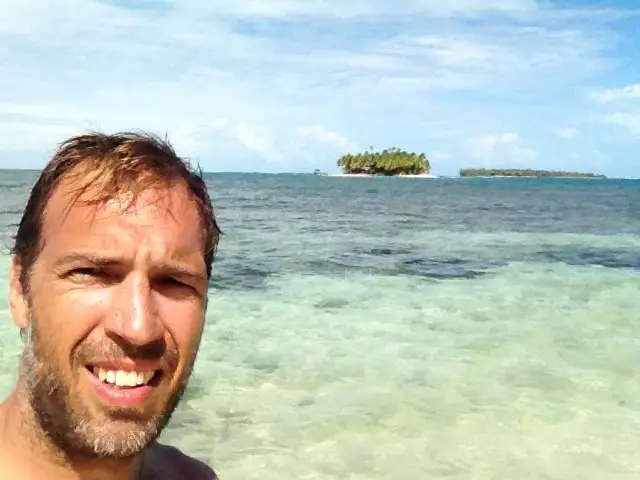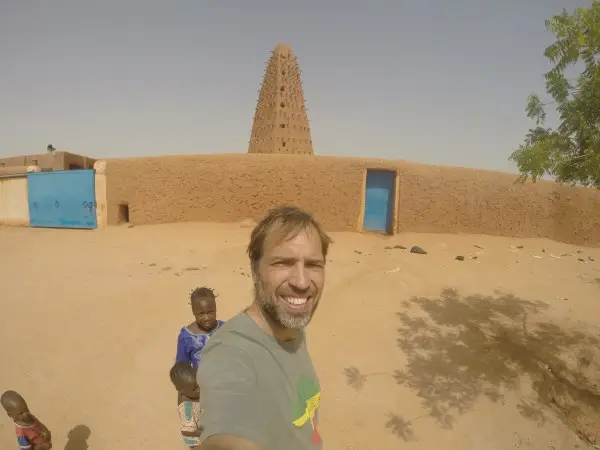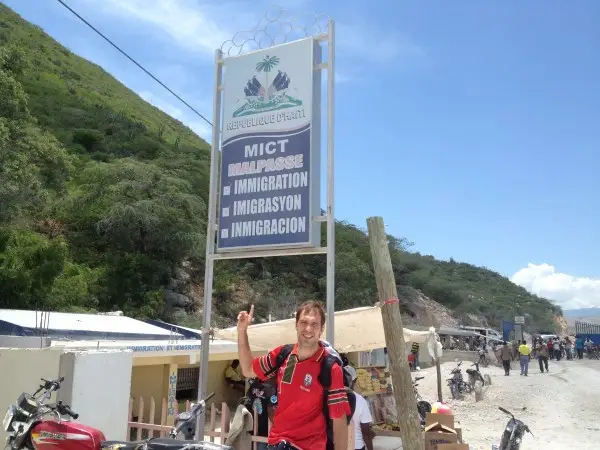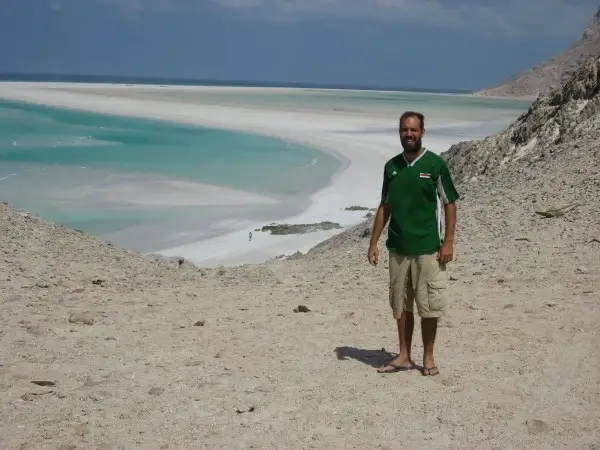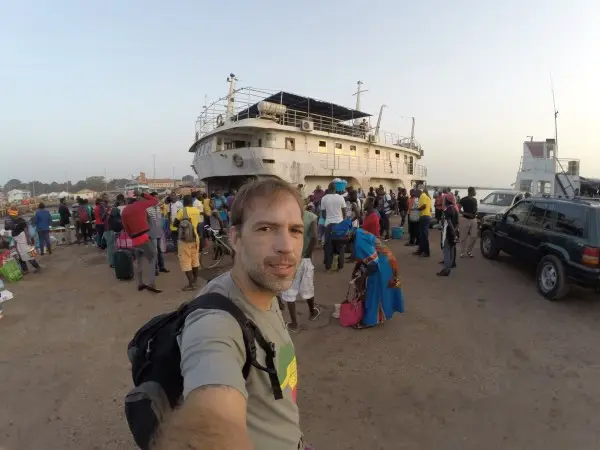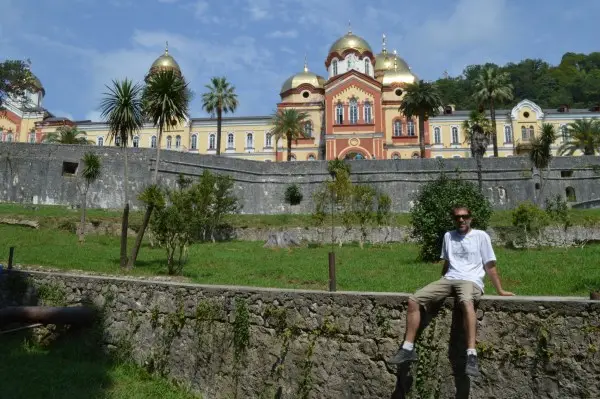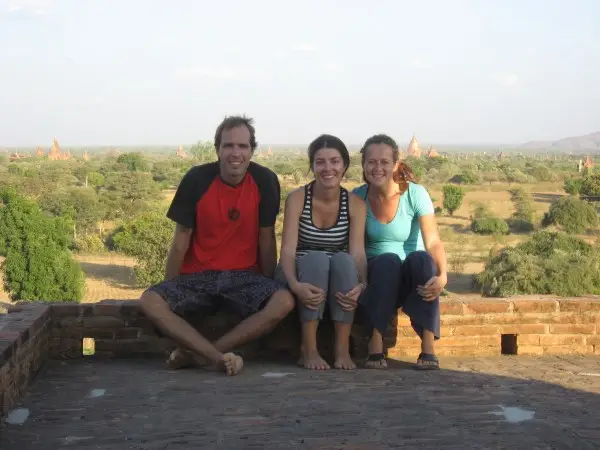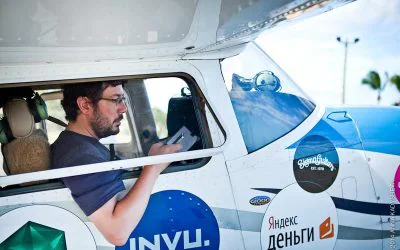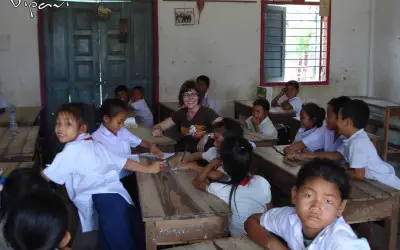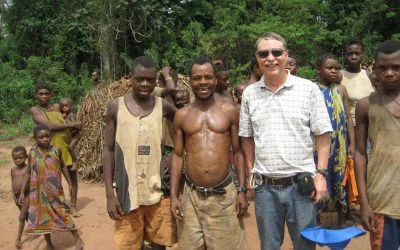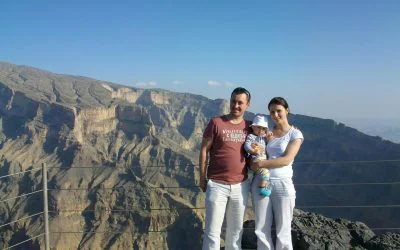Guilherme, you are one of the biggest Brazilian travellers. How does a Brazilian traveller differ from a European or a North American traveller?
Travelling is a new thing for Brazilians. A couple decades ago we had very high inflation and our currency was very weak. People used to travel around South America and dreamt of going to USA or Western Europe. This is changing, and more Brazilians are trying different places.
What is your style of travel?
I would say Backpacker, although I don´t like the word that much. I just prefer Independent Travel. I love travelling overland, to see things changing slowly as I cross borders. My favourite means of transportation will always be public transport. Of course I don´t mind taking a car to travel to a remote destination, but I just prefer to be around people and interact. For me it’s the best part of the trip. I´m a big enthusiast of long trips. Just love it, probably because I don´t like to plan details of my travels and so I love the freedom. I did a 3-year non-stop trip around the world once, a couple two-month trips but my average is about one month. But if I don´t have time, nothing holds me, I go on short trips as well.
You are currently ranked 158th on TBT, 5th in Brazil. What are your future travel aims? Which places would you really like to see?
I don’t take it as a competition, it is a personal choice to travel the world, and I want to travel because I enjoy it, not because of numbers. But it is always great to see where people have been, and ask for advice. I always invite travellers to be part of TBT. Unfortunately some big Brazilian Travellers are still not part of it.
I think I have been to many places that many of the well-travelled Brazilians have not been to yet. I love Africa. I would love to keep exploring this fantastic continent. I would say Sudan and Eritrea are high in my list. I first went to West Africa only last year. Returned there this year and would love to go from Guinea-Conakry to Ivory Coast overland.
On my trip to Central Asia I missed Tajikistan and Afghanistan. Would be great to go there as well.
If you had to recommend 5 gems of Brazil which are not that well known to a foreigner, which would they be and why?
Brazil is a massive country, with hundreds of sites and places. Unfortunately long distances, poor infrastructure and high prices keep long-term travellers away.
– Lençois Maranhenses is well known (and stunning!), but very close to it is the Parnaida Delta, Barra Grande Beach and Sete Cidades National Park. Lovely places in a not much travelled state (Piauí)
– Close to Paraty, popular colonial town south of Rio de Janeiro State, is Praia do Sono Beach. One of the most beautiful beaches in Brazil, only possible to reach by trail or by boat. It is possible to go around the whole peninsula (Ponta da Joatinga) walking if you want. Very well preserved Atlantic Forest, beautiful beaches and fisherman villages.
– Ilha do Mel/Guaraqueçaba/Superagui National Park. Another well preserved Atlantic Forest area. You can explore the communities by boat, see dolphins, enjoy waterfalls, and hang out on the car-free Ilha do Mel.
– Abrolhos archipelago, just offshore of Caravelas, you stay overnight only on the boat. You don´t go for the islands, they are protected, but for the marine life. Great place to scuba dive or snorkel.
– Praia do Rosa, it is quite well known, not far from Florianópolis. Rolling green hills, with great views, a lagoon, big waves for surfing, whale watching and a cool atmosphere.
Do you have a travel experience which stands out in your memory?
So many that it would be difficult to list one. But what always comes to my mind is the people helping me on the road, sharing food and opening their houses without even knowing me. Africa in general and Middle East are great for that. On the other hand, I had some great experiences camping wild, far from everything in places like North Mozambique, Socotra Island and the Mountains in Kyrgyzstan and Pakistan.
You have a website called Saiporai. Can you explain the name, and what is the purpose of your website?
It comes from Saí por aí. Something like “(I) go around” or ” Left for somewhere”.
It started as a way to tell my family and friends about my around-the-world trip. After that I kept writing about new trips, and even some interesting old ones. But I don´t write about all the places I go to. Most of my trips to Western Europe are not there for example.
You are also a well-known author of travel books. Tell us something about your first and second books.
In “De Cape Town a Muscat: Uma Aventura pela Africa” (From Cape Town to Muscat: An adventure through Africa), I write about my trip across eastern Africa (15 countries) by public transport, and Yemen an Oman as well. It was the first leg of my world trip, taking about seven months.
The second book, De Istambul a Nova Delhi: Uma Aventura pela Rota da Seda (From Istanbul to New Delhi, An adventure through the Silk Route), I tell stories about my trips from Istanbul to Kurdish Iraq, Iran, Central Asia, Western China, Pakistan and India. It was the last part of my trip around the world. There is almost two years of travelling between them, but I decided to publish these regions because they are not well known for Brazilian travellers.
Your latest book is called ‘Paises que não existem’ (Countries that don’t exist). Which countries do you present? Have you been to all of them? Why does this subject fascinate you?
The main chapters are about Kosovo, Western Sahara, Palestine, Somaliland, Transnistria, Abkhazia, Nagorno-Karabakh, Northern Cyprus, South Ossetia and Taiwan. Countries that are de facto independent but with limited recognition. I have been to all but South Ossetia and Taiwan. I managed to get the South Ossetia entry autorization, but due to a landslide and road-block I missed the entry date. I had time and travelled to North Ossetia, Ingushetia and Chechnya instead. I confess that I´m not really interested in Taiwan. I´ll probably go there someday, when I´m visiting some countries in the region, but it is very far from the top of my travel list.
I also mention some regions that were independent in the past or want to be, like Tibet, Kurdistan, some Russian republics, East Turkestan, Kashmir. I´ve been to all of them.
The first of these countries that I visited was Somaliland. I was amazed by a place that definitely exists, has institutions working, people, culture, yet no other countries recognise it. I ended up visiting other countries in a similar situation and then decided to write a book about them.
What do you think of TBT and its way of dividing the world?
Easily the best division among the travel websites. I really hope that it becomes bigger and bigger, because it has data from so many world travellers. It can become a great place for travel information and tips.
What are your travel plans for the next 6 months?
I will go to Rio for the Olympics Games and will do some other trips in Brazil. My son is nine months old at the moment, and I will probably have fewer trips for now. We went to the Baltics a couple months ago all together, and it worked well as our first international trip with a baby, but we decided to have some trips in Brazil this year. I might do a trip alone. Sudan is the first option.
Finally, a question we often ask: if you could invite 4 people from any period in human history to an imaginary dinner, who would they be and why?
I´m not very good with lists. But definitely Ibn Battuta, one of the greatest travelled of all time, who travelled the world to discuss Islamic jurisprudence. Mansa Musa emperor of Mali, one of the richest men of all time and great traveller, Guru Nanak who travelled searching for knowledge. And Genghis Khan (or his son Ogedei) who travelled to establish the biggest empire ever. Charles Darwin who travelled for science. Ooops, already 5.
The photos in this article are from Guilherme’s personal collection and are from – Cayo Perlas (Nicaragua), Niger, Haiti, Socotra (Yemen), Guinea Bissau, Abkhazia and Myanmar.
